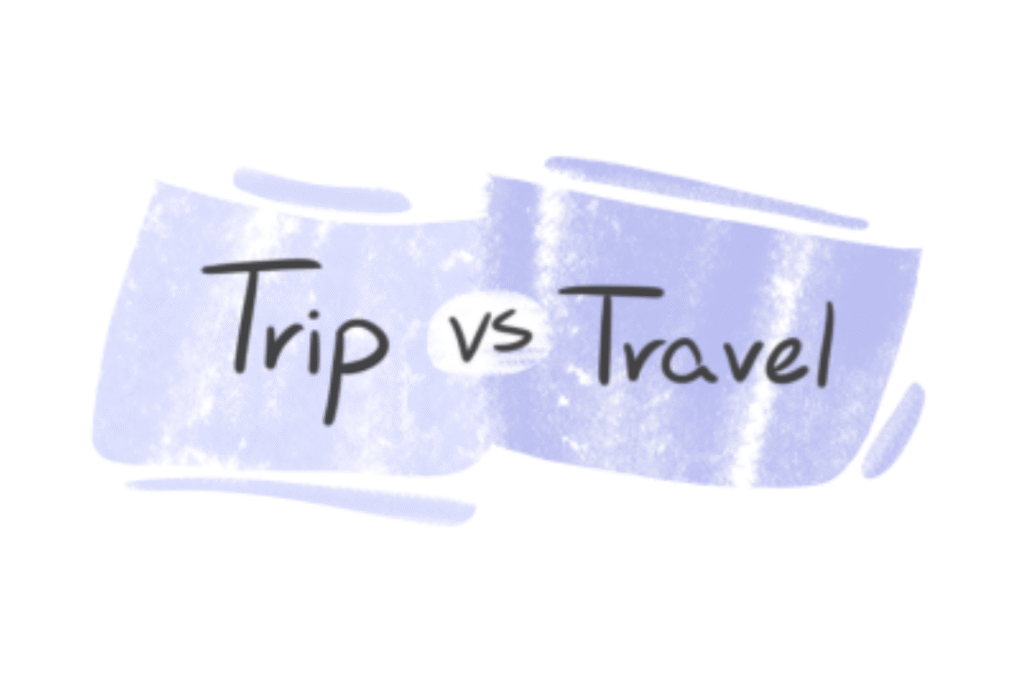Whenever people talk about journeys, vacations, or adventures, two words often pop up: trip and travel. At first glance, they look similar, and many people use them interchangeably. However, the truth is that there’s a subtle yet important difference between the two. Understanding that difference can help you express yourself more clearly, especially if you love sharing stories, writing blogs, or planning holidays.
The Core Difference Between Trip and Travel
Let’s break it down in the simplest way possible. A trip refers to a specific journey, usually with a clear destination, purpose, and limited time. For example, “I’m going on a trip to Paris” suggests a defined event with a beginning and an end. On the other hand, travel is broader it refers to the act of moving from one place to another, often describing a lifestyle, an experience, or a long-term activity.
In fact, many learners often search online for the Are trip and travel the same, which shows how people want clarity on these two words. This long-tail keyword highlights how much curiosity exists around the subject.

Short-Term Trips vs. Long-Term Travel
The easiest way to see the difference is by looking at time. Trips are often short-term. They can last a weekend, a few days, or maybe two weeks. Think of a honeymoon trip, a school trip, or a quick family visit to the beach. They are specific, usually well-planned, and often revolve around one goal.
Travel, however, is more long-term and open-ended. It can last weeks, months, or even years. People who travel may not have a strict schedule. Backpackers, digital nomads, or adventure seekers who hop from country to country are not simply taking a trip they are traveling. This distinction makes travel sound more like a lifestyle rather than a single event.
Purpose Shapes the Word You Use
Another way to separate the two is by focusing on why you’re going. Trips usually have a set purpose business trip, medical trip, shopping trip, or leisure trip. You know exactly what you’re doing and when it will end.
Travel, on the other hand, often represents exploration without strict boundaries. Someone who says, “I love travel” isn’t tied to one destination or reason. It’s about discovering cultures, meeting new people, and enjoying experiences across multiple places.
Real-Life Examples for Clarity
Let’s make it more relatable with quick comparisons:
- Trip Example: Attending a two-day business conference in New York.
- Travel Example: Exploring the United States for three months, visiting several states.
- Trip Example: Going on a school trip to the zoo.
- Travel Example: Taking a year-long break to backpack across Europe.
- Trip Example: A honeymoon trip to the Maldives.
- Travel Example: Traveling across Asia to learn about different cultures.
By looking at these examples, it becomes clear that while a trip is narrow and focused, travel paints a much bigger picture.
Why Knowing the Difference Matters?
Now you might ask, why does this distinction even matter? Well, if you’re a traveler, blogger, or even a student, using the right word makes your expression sharper and more professional. If you’re sharing stories online, readers will understand your content better when you use the correct terms.
From an SEO perspective, knowing the difference also matters. Many people around the world search for phrases like “trip vs travel meaning” or are trip and travel the same. Using these terms correctly in your content helps your blog rank higher in search results, making it easier for readers to find your explanation.
Common Mistakes People Make
It’s easy to confuse the two words, and here are the most common mistakes:
- Saying “travel” when they actually mean a single trip.
- Calling a long journey a “trip,” even when it involves multiple countries and experiences.
- Thinking the two words are completely identical.
Avoiding these mistakes not only makes your English sound more natural but also helps in professional settings, such as travel writing or business communication.
The Cultural Perspective
Interestingly, different cultures use these words in slightly different ways. In casual conversation, many English speakers use “trip” when talking about vacations, while “travel” is more often used in inspirational contexts. For example, you might say, “My trip to Dubai was amazing,” but when sharing your passion, you’d say, “I love to travel because it teaches me so much about life.” READ MORE…
Final Thoughts
So, are trip and travel the same? Not exactly. A trip is a short-term, specific journey with a clear reason or destination. Travel, however, is a broader concept that often describes a lifestyle or long-term experience filled with multiple trips. Both words carry the excitement of discovery, but each has its unique role.
The next time you pack your bags, ask yourself: Am I going on a trip or embracing the world through travel? Understanding this difference makes your journey not just clearer in words, but richer in experience.






